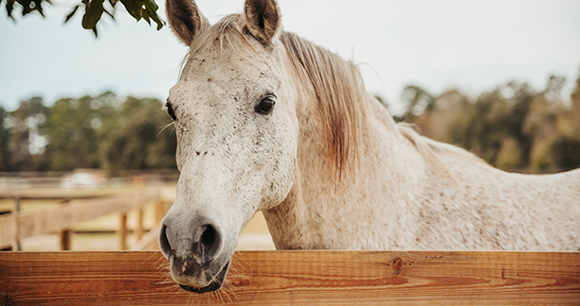
Pro-horse-slaughter organizations and individuals have consistently fought adoption of a federal law banning horse slaughter and export for slaughter, claiming that there is a huge “unwanted horse” population in the United States. Proponents of this unsubstantiated claim, including the American Association of Equine Practitioners (AAEP), the American Veterinary Medical Association (AVMA), and the American Quarter Horse Association have lobbied Congress to block legislation that would stop the slaughter of American horses.
Despite this, federal efforts to ban horse slaughter have seen progress in recent years, including passage by the full House of Representatives of a bill amendment to ban horse slaughter and increasing support in Congress for the Save America’s Forgotten Equines (SAFE) Act. Both the AAEP and the AVMA have expressed strong opposition to the SAFE Act. Their premise is that slaughter improves horse welfare—offering a “humane” way to dispose of these animals, a “necessary evil,” without which horses would be subjected to neglect, abandonment and abuse.
In truth, no hard data exists to back up claims about a burgeoning population of “unwanted horses.” Horse slaughter is at an all-time low, with about 20,000 horses exported for human consumption each year, having fallen from a high of over 166,000 horses being sent to slaughter since the last remaining domestic horse slaughter facilities shuttered in 2007. Even with the steep decline in export for slaughter, there has been no documented increase in the number of horses without homes. What is clear is that kill buyers working for the slaughterhouses are outbidding other buyers at auction because they have the financial incentive to do so. The market for slaughter horses is set by the international demand for their meat in other countries, not by the number of supposedly unwanted horses.
Horse sanctuaries and rescue organizations provide care for horses who have suffered from abuse or neglect. Many can be adopted to loving homes for the remainder of their lives with proper veterinary treatment and care.
Thankfully, over the years, many veterinarians have spoken up to counter the unfounded claims of pro-slaughter veterinary and industry organizations. In 2022, over 200 veterinarians from across the country signed a letter to Congress supporting passage of the SAFE Act, noting the “distinction between horse slaughter and euthanasia” and how “under no circumstances the two should be conflated” given the significant welfare problems associated with horse slaughter. In addition, AWI has partnered with the Humane Society Veterinary Medical Association and other groups to lead an open letter from veterinarians to Congress expressing support for a federal ban on horse slaughter.